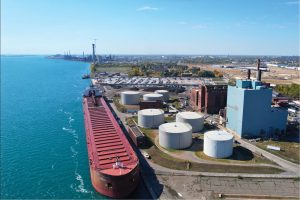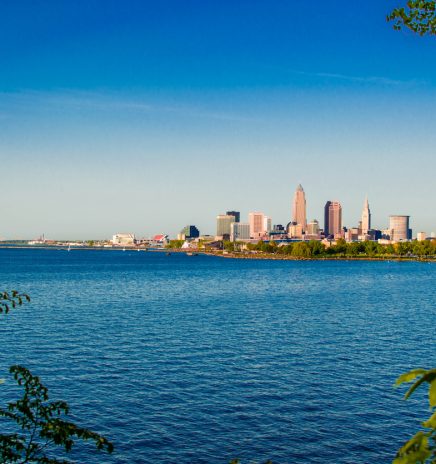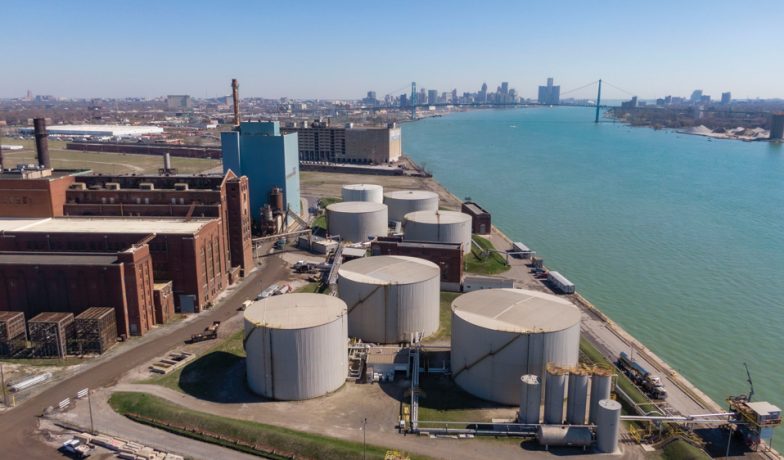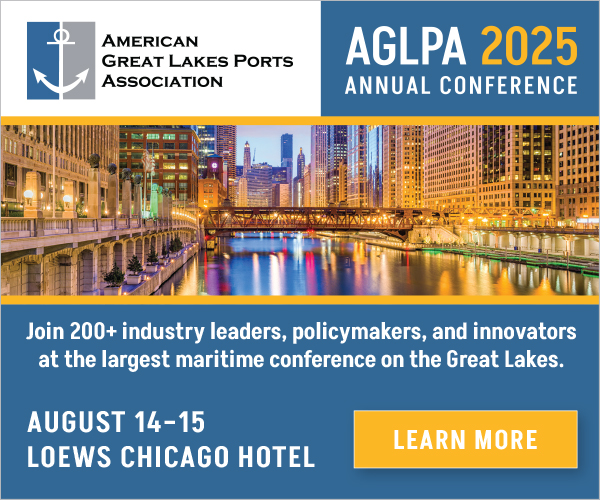Warner Petroleum Bringing Biodiesel to the Great Lakes
Environmentally Friendly Biodiesel Supports Sustainable Shipping
As a major fuel supplier to the Great Lakes, Michigan-based Warner Petroleum is poised to have a major impact on sustainable maritime shipping by promoting biodiesel to its customers. Virtually every commercial vessel operating on the Great Lakes depends on fuel from Warner Petroleum and its family of companies.
“We fuel domestic, Canadian and international shippers, ferries, cruise ships and yachts,” said Jason Smith, vice president of marketing and supply. Smith is excited about the opportunities for biodiesel as a fuel of choice for vessels operating on the Great Lakes.
“We have been interested in biodiesel since its infancy, but the infrastructure has not been in place to create much demand,” Smith said.
That has changed in recent years, he added, as marine fuel customers have become more environmentally conscious, especially publicly traded companies. Investors look at environment, social and governance (ESG) reports and expect progress in areas like emission reduction. In addition, the International Maritime Organization (IMO) has adopted stringent limitations on emissions from seagoing vessels, triggering the need for more sustainable fuels.
B10 to B20 and Higher
To help address these concerns, Warner Petroleum began offering B10 and B20 to Lake Michigan customers in Illinois and Indiana during the summer of 2022. Shippers on Lake Michigan primarily run freshwater ships or “lakers,” which tend to be older vessels with higher levels of emissions. Biodiesel has performed well in these applications, Smith said. When needed, Warner Petroleum connects customers with fuel experts to help with the transition to biodiesel blends.
In 2023, Warner Petroleum began offering B20 to maritime customers from the company’s fuel terminals in Detroit and Dearborn, Michigan – gateways to Lake Erie, Lake Ontario and the St. Lawrence Seaway.
During the current shipping season that runs from mid-March 2023 to mid-January 2024, Smith expects about 25 percent of fuel sales to incorporate biodiesel, primarily B20. “Other shippers may have appetite for B30 or B50. In fact, one Canadian company is testing B99. We want to assist our customers any way we can to help them meet their emissions standards,” he said.
Generational Business
Founded by William and Coloma Warner in 1976, Warner Petroleum is now headed by their son, Harry, president and CEO, who purchased the company in the 1990s. Interestingly, Harry’s brother is a farmer who grows soybeans – giving the family a full-circle connection to biodiesel since soybean oil is a common feedstock for biodiesel production.

Warmer Petroleum is officially headquartered in the north central Michigan city of Clare – the elder Warners’ hometown. However, its operations are focused primarily in the Detroit area.
“We take great pride working in Detroit and benefiting everyone in the Great Lakes region,” Smith said.
The vertically integrated operations of Warner Petroleum include marine petroleum and bulk fuel storage terminals at Detroit (Detroit River) and Dearborn (Rouge River) in Michigan, and at Burns Harbor, Indiana (Lake Michigan). Together, these facilities form the Waterfront Petroleum Terminal Company, which is a member of Green Marine, a voluntary environmental improvement program for the maritime industry. Companies that participate in Green Marine agree to conduct their operations in a sustainable manner and minimize their environmental footprint.
Warner Petroleum’s other businesses include marine transportation operations with tugboats and fueling barges in Detroit and East Chicago, Indiana, as well as truck and rail transportation and bulk cargo dock and material handling services.
Shipping Sustainably
Smith is passionate about the role of maritime operations in sustainable shipping. The largest freighters can carry 70,000 tons of cargo in a single voyage – equal to 700 rail cars of 2,800 trucks.
“Marine shipping keeps trucks off the road. As we build up infrastructure, there is room for the marine market to significantly increase its demand for biodiesel,” he said.
To demonstrate its support of biodiesel and environmental sustainability, Warner Petroleum joined the Michigan Advanced Biofuels Coalition in 2022.
“Membership is already paying dividends,” Smith said. “It’s helped us source materials and has been a very prosperous networking opportunity. We appreciate the opportunity to work with everyone in the coalition.”
Ultimately, Smith hopes Michigan will adopt incentives to create more demand for biodiesel produced in the state.
“Companies want to be environmentally responsible, but biodiesel also has to fit their business plans and pay off economically,” he said. “Incentives in states like Illinois encourage businesses to invest in biodiesel. We support similar incentives in Michigan.”

Bill Introduced to Protect Funding for NOAA and Great Lakes Programs
In response to a series of funding and staffing cuts to the National Oceanic Atmospheric Association (NOAA) and the National Weather Service, U.S. Rep. Tim Kennedy (D-NY) has introduced H.R.... Read More

U.S. Shipping Companies Invest in Great Lakes
Critical maintenance is well underway on the U.S.-flagged fleet of lakers tied up at ports across the Great Lakes region in anticipation of the upcoming navigation season. Hundreds of skilled... Read More




